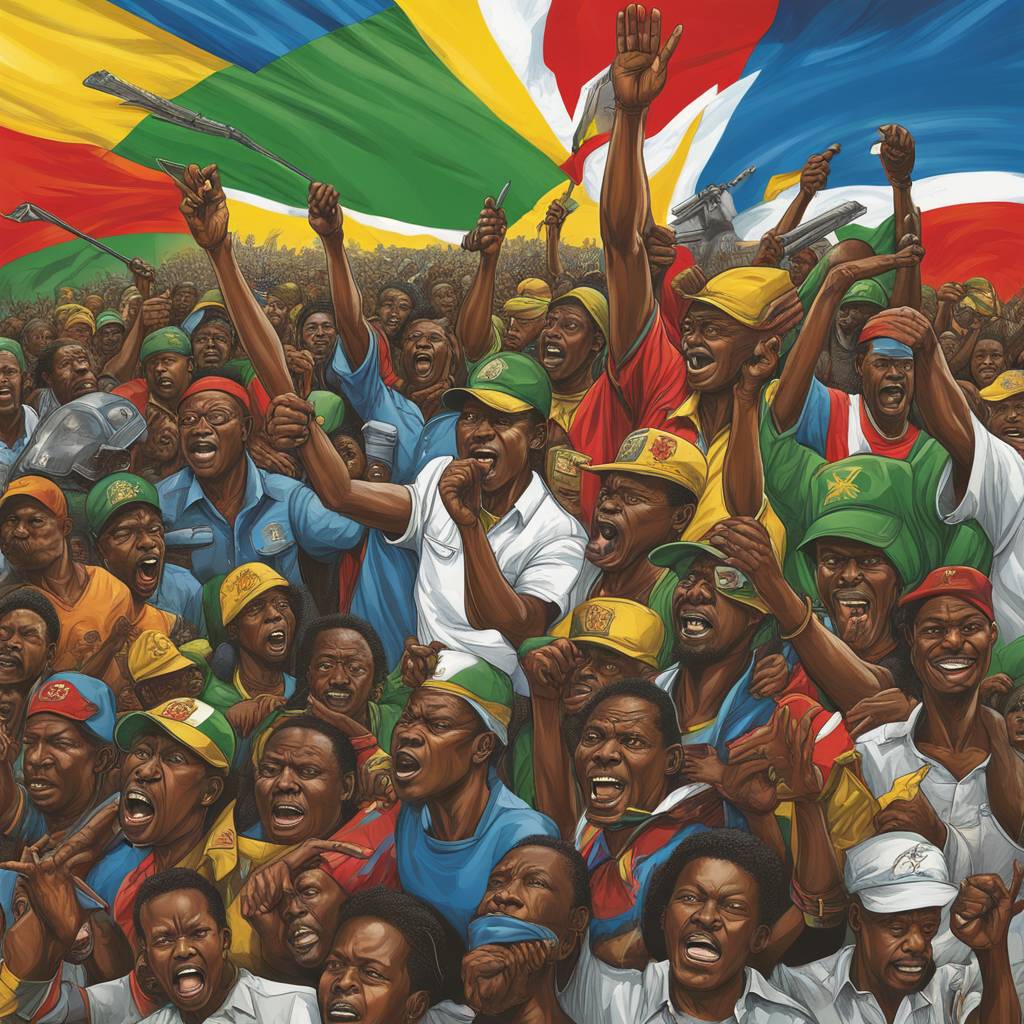Demonstrators in the West African country of Togo are protesting against a new constitution that would extend the rule of President Faure Gnassingbé until 2031. Gnassingbé inherited the presidency from his father in 2005, who had been in power since 1967. The proposed adjustments to presidential term limits could keep Gnassingbé in office even longer, leading to concerns about his autocratic rule. Activists and opposition leaders are calling for protests to prevent the new constitution from being signed into law, which would eliminate future presidential elections and grant parliament the power to choose the president.
The new constitution, passed by lawmakers earlier this week, awaits President Gnassingbé’s final approval. It would extend presidential terms from five to six years and introduce a one-term limit, although the years Gnassingbé has already served would not count towards this limit. Despite claims that the constitution could actually restrict the power of future presidents by handing over greater authority to a figure similar to a prime minister, the opposition and clergy argue that it is an attempt by Gnassingbé to prolong his rule. They are calling on the people to rise up and oppose the legislation, describing it as a “constitutional coup d’état.” The National Alliance for Change party and Togo’s Catholic bishops have also denounced the parliament’s mandate to adopt a new constitution, urging Gnassingbé to engage in inclusive political dialogue instead.
A group representing Togo’s Catholic bishops stated that the parliament’s mandate had expired ahead of the country’s parliamentary elections and that lawmakers did not have the authority to adopt a new constitution. Legal experts like Zeus Ajavon, a lecturer in Constitutional Law at the University of Lomé, argued that a referendum was necessary for the country to adopt a new constitution. The bishops urged Gnassingbé to delay signing the legislation and engage in dialogue following the upcoming elections. Togo, a nation of around 8 million people, has been ruled by the same family for 57 years, initially by Eyadema Gnassingbé and subsequently by his son Faure, who took office in 2005 amidst allegations of election fraud.
Opposition leaders like Eric Dupuy have vowed to continue the fight against the new constitution, emphasizing the long and difficult struggle ahead but expressing confidence in the Togolese people’s ability to prevent the extension of Gnassingbé’s rule. The opposition is calling on the population to reject the constitutional changes and rally against them. Critics of the new constitution argue that it undermines democratic processes and consolidates power in the hands of the ruling government. With concerns about the potential for authoritarian rule to continue unimpeded, Togo is facing a critical moment in its political history. The outcome of the protests and the government’s response will be pivotal in determining the future direction of the country and the protection of democratic principles.


